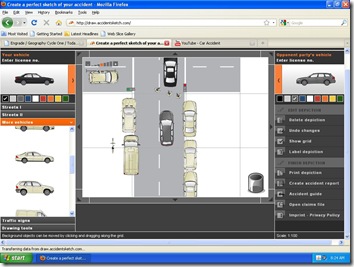In one of my university classes, a professor posed the question, “Is teaching an art or a science.” My opinion on this question has since fluctuated over the years. These days, I lean more towards art.
One the best and the worst things about teaching is that there is no single prescriptive method. Our profession boasts a wonderful amount of freedom and potential for individual  creativity. The flipside is that the autonomy afforded by teaching can become sometimes daunting.
creativity. The flipside is that the autonomy afforded by teaching can become sometimes daunting.
Two recent examples in my PLN reminded me that teaching is not a dogma.
Today, I read an article written by Lisa Nielsen, entitled, “21st Century Educators Don’t Say, “Hand It In.” They say, “Publish It!”
Lisa writes:
When I tweeted, “Educators who ask students to, "Hand it in" rather than, "Publish it" are stuck in the past and not preparing 21st century students.” I received a lot of kudos and retweets, but I also received a bit of push back along the lines that it’s not realistic to expect all student work to be published. My response is this. The authentic publication of student work should be a part of EVERY SINGLE UNIT OF STUDY.
Lisa’s statement shook me up. I have been asking my students to publish most of their work online, mostly on their blogs. However, I have also been assigning them traditional worksheets, which they submit to me. I just took it for granted that I had to temper the fun computer-based activities with serious worksheets. I just took it for granted that worksheets were real work, and there had to be at least some real work in my classes. To reassure the parents and anyone else who might be watching me that I am still running a real classroom: with traditional desk work and serious academics. Worksheets were the mandatory foundation; computer work was supplementary. The possibility never even occurred to me to abandon worksheets altogether. Even now, I instinctively shirk from this scenario.
Tracey Rosen penned a blog post called, “On de-rubricizing.” She writes:
For a long time now I have been sceptical of the whole rubric frenzy. Must have a rubric, must have a rubric. Why? Why should we tell kids exactly what our expectations are and in such minute detail? I call that a creativity killer. Give them some parameters. If you are expecting the result to be some kind of multimedia presentation let them know that, give them the guiding question, maybe a few resources to get them going, to raise the velcro in their brains, but then let them experiment!
Tracey is a fellow Quebecer. In this province, we are in the infancy of an education reform, one component of which is rubrics. Until I read Tracey’s comment, I robotically believed that rubrics were good. I just assumed that every knowledgeable educator, like myself, adhered to the opinion that rubrics are good. It never even dawned on me to question their merit. As it is, I still feel that rubrics are beneficial; but, Tracey encouraged me to question an opinion that I felt was incontestable and reminded me not to project my egocentric assumptions onto my peers.
So, there you go: two nice examples of how the rules of teaching are not written in stone. As a teacher, I should not be married to my pedagogy.
Photo by p!o.

 creativity. The flipside is that the autonomy afforded by teaching can become sometimes daunting.
creativity. The flipside is that the autonomy afforded by teaching can become sometimes daunting.



 Xtranormal
Xtranormal


